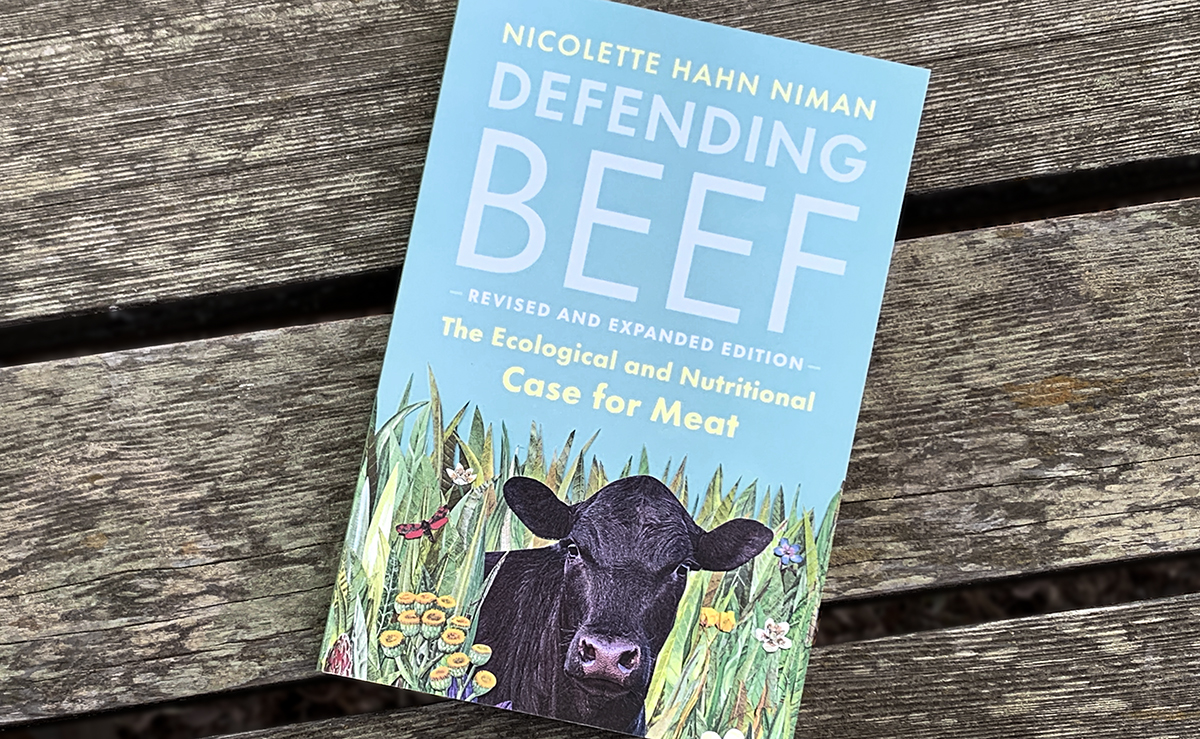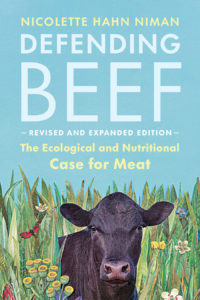Nicolette Hahn Niman’s first edition of Defending Beef, the Ecological and Nutritional Case for Meat should have been a coup de grâce to the anti-meat movement…
Defending Beef – Revised and Expanded Edition

08/31/2021
By: William Milliot
 Nicolette Hahn Niman’s first edition of Defending Beef, the Ecological and Nutritional Case for Meat should have been a coup de grâce to the anti-meat movement given the plethora of facts it brought to the debate about whether beef is healthy and if it can be raised in an ecologically sound manner. However, several years after that book was first published, the debate rages on. Recently, Hahn Niman picked up her pen to update the book with new scientific developments, the latest “food” trends, and other considerations that support the “ecological and nutritional case for meat.”
Nicolette Hahn Niman’s first edition of Defending Beef, the Ecological and Nutritional Case for Meat should have been a coup de grâce to the anti-meat movement given the plethora of facts it brought to the debate about whether beef is healthy and if it can be raised in an ecologically sound manner. However, several years after that book was first published, the debate rages on. Recently, Hahn Niman picked up her pen to update the book with new scientific developments, the latest “food” trends, and other considerations that support the “ecological and nutritional case for meat.”
For those unfamiliar with Nicolette, she’s a mother, wife, devoted vegetarian, environmental lawyer, rancher, and author. That list alone should be enough to prove she’s qualified to write about the environmental and nutritional benefits of meat. As a mother and wife, she’s dedicated to looking out for the health and welfare of her family. As a vegetarian, she has personally decided meat is not for her and is, therefore, not biased towards it. As a rancher, she has hands-on experience stewarding land and livestock. And, as an environmental lawyer, she’s trained and skilled in researching and understanding scientific literature around environmental impacts as well as the art of laying out a strong argument.
For those already in possession of, or familiar with Defending Beef, the new edition comes with updated research and analysis on topics covered in the first edition; it’s well worth reading to get up to date. As Hahn Niman described in a recent interview:
“I really rewrote it, examining every paragraph and adding a great deal more of the research on things like methane and soil carbon sequestration and a lot of things about the healthfulness of meat. I’ve evolved my thinking about what’s really wrong with the way we’re eating and the way we’re producing foods—in particular, this hyper-industrialization of the food system and our diets and the value of meat as a real, whole, nutrient-rich food. It’s quite a different book.”
But where this edition especially shines is on the hot-button issues of today such as the latest “faux meat” craze, of which she goes on to say,
“I’ve eaten plenty of veggie burgers in my day. But I worry a lot about the new generation of high-tech meat replacements holding themselves up as more environmentally sound and healthier than beef. Silicon Valley-backed “clean meat” is now everywhere. Our guilt over eating meat, we are assured, can be assuaged by consuming nuggets and patties made from plants. This may tempt some, but faux meats are not progress, they are a distraction.”
And follows it up with,
“Plant patty manufacturers want us to believe we can derive the nutritional benefits and gustatory pleasures of meat without the dirty or messy parts. They imply there’s no water or air pollution, no blood.”
In the end, if you already own the first edition of Defending Beef, consider donating it to your local library to make room on your shelf for the revised and expanded version. If you haven’t read it and you’re curious about the arguments for, and benefits of, regeneratively raised meat, get the new edition—to help you become a better-informed consumer.
Read more about Nicolette in The Guardian.
